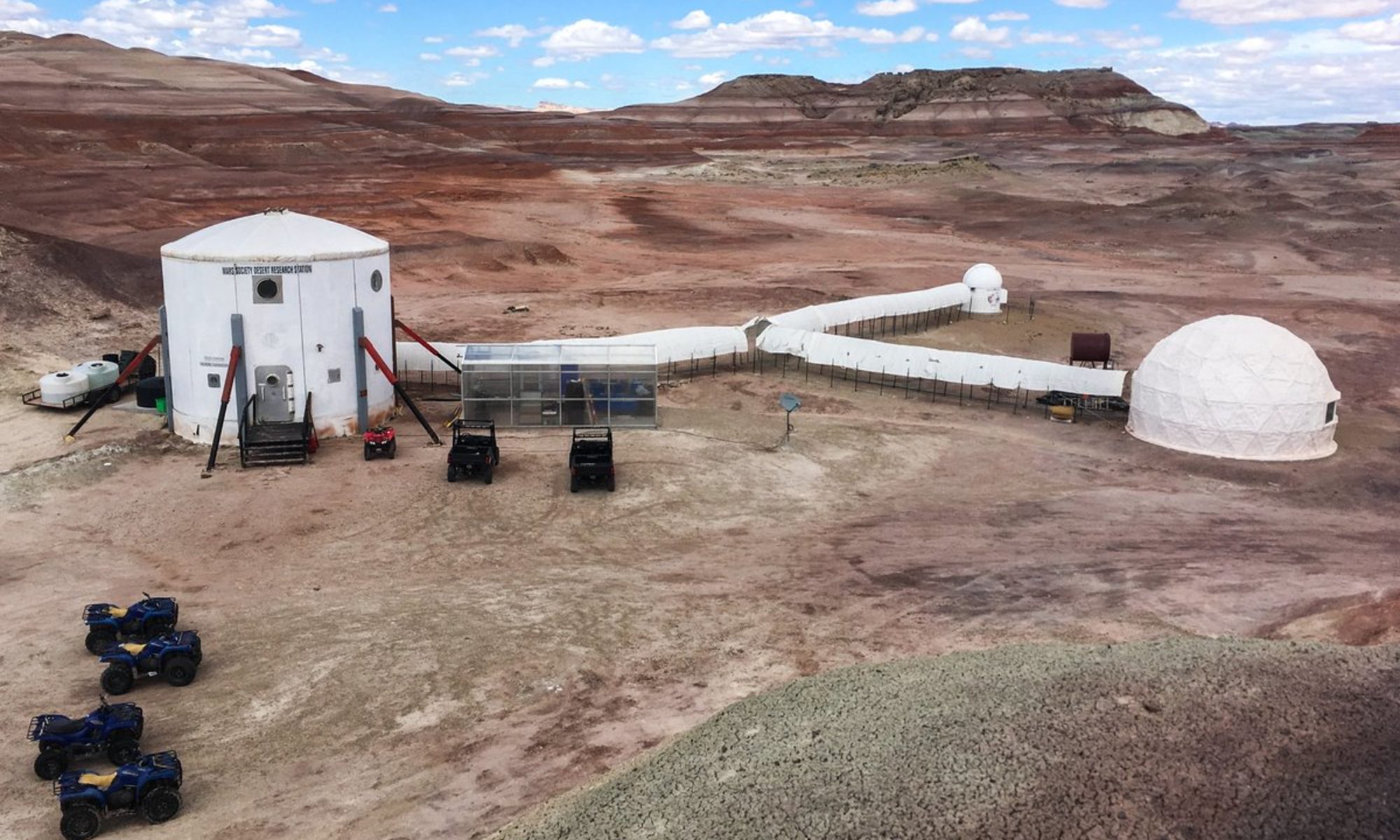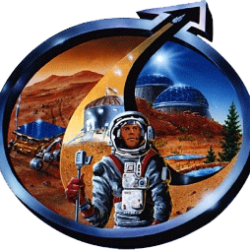THE LAST SUNRISE
Jin Sia
HSO, Crew 228
Disclaimer: The characters are based on the real Areonauts of Crew
228, but the story is entirely fictional to depict an emotional rather
than physical journey.
Dedicated to all who have looked up at the night sky and dreamed
impossible dreams.
— I: ROLL-OUT —
"What, my boy, you are not weeping? You should save your eyes for sight;
You will need them, mine observer, yet for many another night."
– Sarah Williams, ‘The Old Astronomer (to His Pupil)’
And as rapidly as the mission started, it came to an end.
The last few days of the stay on Mars were hectic with preparations to
leave. Three sols before liftoff, breakfast was eaten under a
deafening pall of silence. Minds had begun to stray to last-minute
data collection or to the inevitable litany of press conferences and
presentations that awaited them on Earth. Jin’s was lost in the
labyrinthine regulations governing planetary protection, while Inga’s
chewed on the logistics of defending her PhD thesis remotely from a
spacecraft during the six-month voyage home.
It was Dave who broke the silence: "Could you all please be a bit quieter?"
Amid the chorus of laughter, the crew felt a little more like a crew once again.
Lindsay spent most of her days in the Science Dome, working late hours
in a determined bid to find alien microbes in her samples of the
Jotunheim structure. After 2200 hours, the sound of Inga’s keyboard
chattering away pounded against her closed room door. Jin seemed to be
writing constantly, perhaps some email summarizing his geographical
findings to his contact on Earth or blogging about the events of the
day. Dave was the only one who seemed unbothered by the go-go-go
thrumming drone of work. He investigated the mysteries of the Hab’s
water system and the radios in his methodical engineer’s way.
The dust storms of the previous two days had cleared over Candor
Chasma. The Sun stretched its hands through the portholes, painting
oval spots of warmth on the room doors. The sky glowed a dusty Martian
pink, oblivious to the gray sternness of the sols before. The mascot,
Tiny Diamond, stood in the window as he always had, silver hair afire
like the lining of a stray stormcloud. A conversation about the water
tank echoed up the stairs.
— II: GO —
"Fortune has taken away, but Fortune has given. Let us greedily enjoy
our friends, because we do not know how long this privilege will be
ours."
– Seneca the Younger
"Do we really have to go back to Earth?" said Inga as the Areonauts
suited up in the Hab’s lower deck.
"Not sick of us yet?" Jin replied.
"Oh no, I’m just sicker of Earth than I am of you."
"I’ll take that as a compliment."
Both chuckled and grinned, but the grins soon dissipated like smoke.
The lower deck was suffused with a muted melancholy mood – not like
the other EVA preparation sessions, which always had a spark of
excitement to them. Once all the visors had snapped closed and the
life support packs were whirring away, they tore themselves away from
the Hab’s interior and clambered into the airlock. Leaving Mars was
necessary, for there was work to be done for the species the Areonauts
had left behind.
As they walked out of the airlock and to the pressurized long-range
rover, Jin turned around to look at the Hab one last time – the
faithful Hab that had kept them alive for six months in space and
nearly two years on the Martian surface. It had weathered ferocious
dust storms and the sleet of radiation from Solar flares. Its water
system was leaky, its fire detectors were trigger-happy, and it had
nearly run out of power once, but it was still home.
The next crew to land at Candor Chasma would be a special one – a team
of teachers, working for the benefit of both Earth and Mars with
laser-focused determination to raise up the next generation of space
explorers. Then, there would be the first all-women crew to land on
Mars. Plans had been conceived so that the other five Areonauts still
Earth-bound – Ludo, Yuzo-san, Stu, Marufa, and Charikleia – would one
day warm the Hab’s rooms and be as stunned by the austere beauty of
the planet as the crews before them were.
Jin turned his back on the Hab and joined the others in the rover. He
slammed the door shut, repressurized the rover, and they drove off
together into their last sunrise on Mars.
— III: ORBIT —
"Prometheus they say, brought God’s fire down to Man,
and we’ve caught it, tamed it, trained it, since our history began.
And now we’re going back to Heaven, just to look Him in the eye,
there’s a thunder ‘cross the land, and a fire in the sky!"
– Jordin Kare, ‘Fire in the Sky’
An email flashed on the screen of the Earth Return Vehicle’s cockpit:
"Areonauts go for Mars ascent final checklist."
"Alright, we’ve gotten the go for launch," said Dave, in the pilot’s
seat. "Here’s the final checklist. Fuel – one hundred percent. Life
support?"
"Reserves at one hundred percent, recyclers nominal, atmosphere is
good," reported Jin.
These had been checked and rechecked hundreds of times in the past
hour by the flight computer, but Dave’s meticulousness took no
chances. Finally, after dozens of items, he reached the last line of
the checklist.
"Commander, are we go for launch?"
There was no hesitation. "Go for launch," said Lindsay.
"Okay, we’re on auto sequencer," said Dave. "Tanks pressurizing,
chilling turbopumps, igniter armed…"
The vehicle began to hum as its auxiliary power units started.
"Eight, seven, six, five, four, three…"
The turbopumps screamed to life and the ship vibrated, straining like
a wild animal caught in a trap.
"…two, one, zero."
With surprising force, the ship leapt into the Martian morning sky
upon a pillar of fire and sound. The reddish-brown mesas and plains
shuddered and fell away.
"Off we go!" exclaimed Lindsay. "Woo hoo!"
As the ship ascended, the gees piled on. Two gees crushed them into
their seats. Three gees. Four gees. Jet black darkness flooded the
butterscotch sky. As the ship pitched over on its trajectory, the dark
sky disappeared from the windows and was replaced by the ochre sands
of Mars stretching out above them, like a mural on a gargantuan chapel
ceiling. They raced under the ancient, tortured plains of Arabia
Terra. Clusters of craters left their view as soon as they appeared.
For long minutes, the Earth Return Vehicle gathered speed upon speed
upon speed, going faster and faster across the terrain as its tanks
ran dry.
The engines shut down. The awful weight leapt off the Areonauts’
chests and they drank in their suits’ oxygen greedily, catching their
breath. They heard the staccato bang-bang-bang of attitude control
thrusters firing as the guidance computer fine-tuned their velocity.
The ship gently rolled over to point its solar panels at the Sun, and
the windows were filled with darkness again.
And in that darkness, steady and bright, a blue point of light pierced
through the firmament. No-one needed to say anything to know what it
was. Earth was calling her children home.
— IV: RETROGRADE —
"I think that I shall never see
A poem lovely as a tree."
– Joyce Kilmer, ‘Trees’
The capsule shook and shuddered as it plummeted out of the sky like a
stone. There was a bang as a mortar in the nose fired and
luridly-colored drogue chutes blossomed open in the dense Earth air.
After three years of fractional gravity, the deceleration of four gees
felt like being squeezed in a vice.
Seconds later, the drogue chutes fell away and the main chutes opened,
filling the windows.
The altimeter counted down.
Five hundred metres. Four hundred. Three hundred. Two hundred. One hundred.
A final lurch knocked the air out of the Areonauts as the capsule met
the water. It rolled and pitched like a wild bull for a few seconds
before settling into an upright position. Then, there was silence save
for the gentle splashing of the waves.
Snap.
Dave was the first to open his visor and inhale the salty atmosphere
of the Florida coast, which had been admitted through valves that had
opened in the ceiling.
Snap. Snap. Snap.
The other three opened their visors and inhaled deeply. The fragrance
was sharp and biting, after years of sterile, metallic-smelling
recycled air. Seagulls squawked as they flew over the capsule,
scattering from the cacophony of the approaching recovery barge. They
sounded uncannily familiar, like hypnotic music heard in a dream, or
embers of memory from a life long past.
"Well, that was fun!" said Lindsay. "Anyone wanna go again?"
— V: RECOVERY —
"Here he lies where he longed to be;
Home is the sailor, home from sea,
And the hunter home from the hill."
– Robert Louis Stevenson, ‘Requiem’
Cameras exploded with light like supernovae in the night.
After three years in the womb of a spaceship, the Areonauts squinted
in the harsh glare of the stagelights, hunched forward on the table.
Earth’s gravity well was obviously pleased, in its own jealous way, to
have them back. Journalists had filled the auditorium, some crushed
against the walls. After years of having only each other for company,
to the crew, the immense throng of people seemed to add a few extra
bars of atmospheric pressure to the room.
"Commander Rutter!" came a voice near the front. Lindsay struggled to
find the journalist’s face in the glare. "James Reed, New York Times.
In your opinion, were you or Dr. Popovaite the first to set foot on
Mars, and what does this mean for women in STEM?"
The moment her lips parted to answer, another question cannonballed
out of the darkness.
"Mr. Sia, Fauzi bin Rashid from The Malay Mail. What is your response
to criticism that you have spent too long in the West and have lost
your Malaysian roots?"
Another question, this time with a light German accent.
"Dr. Popovaite, Anna Schoellig from Deutsche Welle. Do you think the
European Space Agency has done enough to support space research in
Lithuania?"
"Alright, one at a time!" Dave said, firmly but without a hint of
being rattled. A hand went up. "There, the lady in the black vest."
"Joanne Swanbeck, The Guardian," said the journalist. "This question
is for the whole crew. You spent three years in space, away from your
friends and families, risking your lives, and giving all you had to
complete the mission. Do you think it was worth it?"
The Areonauts glanced at each other.
Lindsay leaned forward to the microphone. "Yes, it was."
Dave added, "That’s our story, and we’re sticking to it."
The Areonauts burst out in raucous laughter. The journalists, space
agency officials, and dignitaries in the room looked at each other in
abject confusion.
—
"Keep Ithaka always in your mind.
Arriving there is what you’re destined for.
But don’t hurry the journey at all.
Better if it lasts for years,
so you’re old by the time you reach the island,
wealthy with all you’ve gained on the way,
not expecting Ithaka to make you rich.
Ithaka gave you the marvelous journey.
Without her you wouldn’t have set out.
She has nothing left to give you now."
– Constantine P. Cavafy, ‘Ιθάκη’ (Ithaka), translated by Edmund Keeley
—
END

